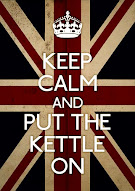Mark Twain, Austen Hater
One man's Shakespeare is another man's trash fiction.
Consider this pithy commentary on the Great Bard's work:
With the single exception of Homer, there is no eminent writer, not even Sir Walter Scott, whom I can despise so entirely as I despise Shakespeare....
But, of course, there must be SOME writers we can all agree on as truly great, right? Like Jane Austen. Or not:
Every time I read 'Pride and Prejudice,' I want to dig her up and hit her over the skull with her own shin-bone.
Robert Frost?
If it were thought that anything I wrote was influenced by Robert Frost, I would take that particular work of mine, shred it, and flush it down the toilet, hoping not to clog the pipes.
John Steinbeck, surely?
I can't read ten pages of Steinbeck without throwing up.
Oh, dear.
But don't think these pleasantries were penned in a frolicsome hour by dilettante book critics with an unslaked thirst for a bit of author-bashing.
The Shakespearean take-down was George Bernard Shaw, the Austen shin-bone basher was Mark Twain, the anti-Frost poet was James Dickey, and the quick!-bring-me-the-bucket-it's-Steinbeck was James Gould Cozzens.
Yes, hell hath no fury like one author gleefully savaging another author's work.
And, lucky for us, there's plenty to be had where that came from.
Cast your eye on these, the 50 most memorable author vs. author put-downs (in no particular order; though if you've got a favorite, by all means, comment on it, below).
Hemingway: writer of bells, balls, and bulls
1. Ernest Hemingway, according to Vladimir Nabokov (1972)
As to Hemingway, I read him for the first time in the early 'forties, something about bells, balls and bulls, and loathed it.
2. Miguel Cervantes' Don Quixote, according to Martin Amis (1986)
Reading Don Quixote can be compared to an indefinite visit from your most impossible senior relative, with all his pranks, dirty habits, unstoppable reminiscences, and terrible cronies. When the experience is over, and the old boy checks out at last (on page 846 -- the prose wedged tight, with no breaks for dialogue), you will shed tears all right; not tears of relief or regret but tears of pride. You made it, despite all that 'Don Quixote' could do.
3. John Keats, according to Lord Byron (1820)
Here are Johnny Keats's p@# a-bed poetry...There is such a trash of Keats and the like upon my tables, that I am ashamed to look at them.
4. Edgar Allan Poe, according to Henry James (1876)
An enthusiasm for Poe is the mark of a decidedly primitive stage of reflection.
5. John Updike, according to Gore Vidal (2008)
I can't stand him. Nobody will think to ask because I'm supposedly jealous; but I out-sell him. I'm more popular than he is, and I don't take him very seriously...oh, he comes on like the worker's son, like a modern-day D.H. Lawrence, but he's just another boring little middle-class boy hustling his way to the top if he can do it.
6. William Shakespeare's A Midsummer Night's Dream, according to Samuel Pepys (1662)
...we saw 'Midsummer Night's Dream,' which I had never seen before, nor shall ever again, for it is the most insipid ridiculous play that ever I saw in my life.
7. Edward Bulwer-Lytton, according to Nathaniel Hawthorne (1851)
Bulwer nauseates me; he is the very pimple of the age's humbug. There is no hope of the public, so long as he retains an admirer, a reader, or a publisher.
Charles Dickens writing something rotten, vulgar, and un-literary
8. Charles Dickens, according to Arnold Bennett (1898)
About a year ago, from idle curiosity, I picked up 'The Old Curiosity Shop', and of all the rotten vulgar un-literary writing...! Worse than George Eliot's. If a novelist can't write where is the beggar.
9. J.K. Rowling, according to Harold Bloom (2000)
How to read 'Harry Potter and the Sorceror's Stone'? Why, very quickly, to begin with, and perhaps also to make an end. Why read it? Presumably, if you cannot be persuaded to read anything better, Rowling will have to do.
10. Oscar Wilde, according to Noel Coward (1946)
Am reading more of Oscar Wilde. What a tiresome, affected sod.
11. Fyodor Dostoevsky, according to Vladimir Nabokov
Dostoevky's lack of taste, his monotonous dealings with persons suffering with pre-Freudian complexes, the way he has of wallowing in the tragic misadventures of human dignity -- all this is difficult to admire.
12. John Milton's Paradise Lost, according to Samuel Johnson
'Paradise Lost' is one of the books which the reader admires and lays down, and forgets to take up again. None ever wished it longer than it is.
13. Oliver Goldsmith's The Vicar of Wakefield, according to Mark Twain (1897)
Also, to be fair, there is another word of praise due to this ship's library: it contains no copy of 'The Vicar of Wakefield', that strange menagerie of complacent hypocrites and idiots, of theatrical cheap-john heroes and heroines, who are always showing off, of bad people who are not interesting, and good people who are fatiguing.
14. Ezra Pound, according to Conrad Aiken (1918)
For in point of style, or manner, or whatever, it is difficult to imagine anything much worse than the prose of Mr. Pound. It is ugliness and awkwardness incarnate. Did he always write so badly?
15. James Joyce's Ulysses, according to George Bernard Shaw (1921)
I have read several fragments of 'Ulysses' in its serial form. It is a revolting record of a disgusting phase of civilisation; but it is a truthful one; and I should like to put a cordon around Dublin; round up every male person in it between the ages of 15 and 30; force them to read it; and ask them whether on reflection they could see anything amusing in all that foul mouthed, foul minded derision and obscenity.
16. George Bernard Shaw, according to Roger Scruton (1990)
Concerning no subject would he be deterred by the minor accident of complete ignorance from penning a definitive opinion.
Goethe, author of the worst book Samuel Butler ever read
17. Jane Austen, according to Charlotte Bronte (1848)
Why do you like Miss Austen so very much? I am puzzled on that point. What induced you to say that you would rather have written 'Pride and Prejudice'...than any of the Waverly novels? I should hardly like to live with her ladies and gentlemen, in their elegant but confined houses.
18. Goethe, according to Samuel Butler (1874)
I have been reading a translation of Goethe's 'Wilhelm Meister.' Is it good? To me it seems perhaps the very worst book I ever read. No Englishman could have written such a book. I cannot remember a single good page or idea....Is it all a practical joke? If it really is Goethe's 'Wilhelm Meister' that I have been reading, I am glad I have never taken the trouble to learn German.
19. John Steinbeck, according to James Gould Cozzens (1957)
I can't read ten pages of Steinbeck without throwing up. I couldn't read the proletariat crap that came out in the '30s.
20. Herman Melville, according to D.H. Lawrence (1923)
Nobody can be more clownish, more clumsy and sententiously in bad taste, than Herman Melville, even in a great book like 'Moby Dick'....One wearies of the grand serieux. There's something false about it. And that's Melville. Oh dear, when the solemn ass brays! brays! brays!
21. Jonathan Swift, according to Samuel Johnson (1791)
Swift has a higher reputation than he deserves...I doubt whether 'The Tale of a Tub' to be his; for he never owned it, and it is much above his usual manner.
22. Gertrude Stein, according to Wyndham Lewis (1927)
Gertrude Stein's prose-song is a cold black suet-pudding. We can represent it as a cold suet-roll of fabulously reptilian length. Cut it at any point, it is the same thing; the same heavy, sticky, opaque mass all through and all along.
23. Emile Zola, according to Anatole France (1911)
His work is evil, and he is one of those unhappy beings of whom one can say that it would be better had he never been born.
24. J.D.Salinger, according to Mary McCarthy (1962)
I don't like Salinger, not at all. That last thing isn't a novel anyway, whatever it is. I don't like it. Not at all. It suffers from this terrible sort of metropolitan sentimentality and it's so narcissistic. And to me, also, it seemed so false, so calculated. Combining the plain man with an absolutely megalomaniac egotism. I simply can't stand it.
25. Mark Twain, according to William Faulkner (1922)
A hack writer who would not have been considered fourth rate in Europe, who tricked out a few of the old proven sure fire literary skeletons with sufficient local color to intrigue the superficial and the lazy.








croppedsidebar.jpg)

.png)


















No comments:
Post a Comment